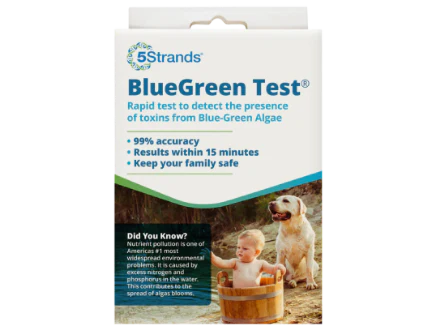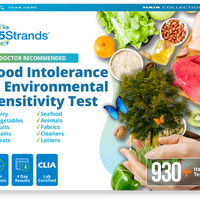Have you noticed how common synthetic supplement ads are? It seems like everywhere you look, advertisers try to sell you a wide range of health and wellness products such as protein shakes, energy boosters, multivitamins, herbs, and longevity pills that promise higher levels of energy and vitality, weight loss, stronger immunity and disease prevention. Modern life with all its demands can be challenging. It’s understandable why for many health-conscious and fitness enthusiast individuals like you and I, it's appealing to want to get our nutrients, vitamins and minerals in a package or bottle.
But just with everything that impacts your health, it’s important to do your nutritional homework. So, it’s a good idea to question those advertisers’ promises by asking yourself: “Do synthetic supplements really provide a better option to natural whole foods in bringing us the energy and health we need to function well and enjoy better quality of lives? This article will try to answer this and other questions on your mind and compare synthetics to natural whole foods while considering the risks of vitamin and mineral imbalances.
What are synthetic supplements?
It’s not surprising when many of us don’t get enough nutrients from our diets alone and notice the impact it has on our health, how we rush to get the vitamins and minerals we lack from unnatural sources. The National Institute of Standards and Technology (NIST) estimates that approximately 75% of the US population takes synthetic dietary supplements, with a total annual expenditure of more than $20 billion. Synthetic supplements are dietary products made in a laboratory or processed in a factory, designed to imitate many of the powerful nutrients we find in natural foods. We can purchase these synthetic supplements in various forms, including capsules, tablets, powder, and liquid.
While many of us find it very convenient and time-saving to take these synthetic supplements because they help us address some necessary nutritional deficiencies- I know it because I’ve been there- these supplements are not always properly absorbed by our bodies. That is because many of these synthetic products separate a nutrient (e.g., magnesium) from its synergistic companions that occurs in natural whole foods. Additionally, these supplements may not have the natural cofactors (enzymes and phytonutrients) that we find in natural food products such as fruits and vegetables, causing absorption issues and even some side effects for many when taken in excess or incorrectly.
The value of a whole food diet
Many of us still remember being told as children to eat our vegetables. Well, there is a reason why our mothers encouraged us to eat well. Whole foods are rich in various sources of vitamins and minerals in their natural form since their ingredients have been minimally processed, and don’t come with unnatural artificial additives. Some natural foods, such as spinach, egg yolk, and berries, also contain other nutrient compounds that aid absorption. We can enjoy many other benefits when we get our vitamins and minerals from whole and natural food sources, including:
- Lower risk of overdose or toxicity
- Abundant in fiber and antioxidants
- More bioavailable (easier for our bodies to absorb and use)
I think it’s great news to know that it’s most effective for our bodies to get the nutrients it needs from natural foods. But wait, it doesn’t end there, whole foods contain flavonoids, carotenoids, and are rich in antioxidants, healthy nutrients that you wouldn’t get from most synthetic supplements. I understand that it’s not possible to get all your vitamins and minerals from one single food source for optimal health and proper body function, but Dr. Sesso, an epidemiologist at Harvard-affiliated Brigham and Women's Hospital, recommends improving your diet before taking supplements.
What research says about whole food vs synthetics
Perhaps you subscribe to the commonly-known view that artificial nutrients are almost identical to natural food ingredients found in plants and animals. But such is not the case because the way synthetic supplements are created, and absorbed and used in the body isn’t the same. For example, some studies show that natural vitamin E is absorbed two times more efficiently than synthetic vitamin E. This added benefit you and I get in natural food absorption and utilization is due to the presence of additional natural compounds lacking in synthetics. Research on the health benefits of certain fruits and vegetables and their role in preventing cardiovascular disease and cancer reports that their powerful antioxidant and anti-cancer effects are due to “the additive and synergistic combinations of phytochemicals.” In other words, a diet rich in fruits and vegetables is the result of their complex combination of phytochemicals found in natural food.
Another study published in the American Journal of Clinical Nutrition found that high-dose synthetic beta carotene supplements may raise the risk of lung cancer in smokers. Research published in 2022 in the journals of Liver Transplantation found that drug-induced acute liver failure associated with herbal and dietary supplements had increased eight times from 1995 to 2020. The journal of Hepatology published another study in 2017, linking herbal and dietary supplements to 20% of liver toxicity cases in the U.S. While convenient for many of us and necessary for some, taking vitamin supplementation comes with risks. So, it’s important that we take them properly.
The risk of nutritional imbalances

Unlike someone with a nutritional deficiency, a healthy person getting all the essential nutrients will typically have enough energy, feel strong, have a strong immune system to adequately fight off diseases, and will feel physical and mental vitality. Nutritional imbalances (undernourishment and over-nourishment) occur even in healthy individuals when the body does not get the correct amounts of essential nutrients for proper functioning, leading to deficiencies or excesses. These can range from mild deficiencies to more chronic nutritional imbalances, significantly impacting a person’s overall health and well-being.
A case in point is my personal experience with this. After many years of being on a vegan diet, I recently began noticing changes in my athletic performance, some gastrointestinal issues and extreme fatigue. Test results revealed a lack of healthy fats and other important nutrients. As a result, I had to make some necessary dietary changes and add some supplements in order to compensate for some nutritional imbalances.
Depending on your lifestyle, dietary habits and personal health history, you can experience different symptoms of nutritional imbalance including fatigue, skin problems, poor cognitive functioning, obesity, low immune response, irregular heartbeat, underweight, slow wound healing, and other serious health conditions. Not only can these nutritional imbalances affect your energy level and physical health, but they can also affect mental well-being and even increase your risk of chronic diseases.
Who is most at risk of nutritional imbalances?

While nutritional imbalances can affect all of us at various stages of our lives, research tells us that among those particularly affected are children, pregnant women, chronically ill people, and the elderly. Some of the reasons why some of us may have a nutritional imbalance include illness, poor digestion, imbalanced GI flora, and poor dietary habits. These imbalances can also be triggered by hypersensitive response to certain foods, and an impaired metabolism, absorption, and production of nutrients the body can’t produce due to physical and emotional stress.
When are synthetic supplements needed?

If you maintain a well-balanced, whole food diet, you may not always need nutritional supplementation because you can usually obtain all the necessary nutrients for optimal health from natural food sources.There are, however, a number of situations where you may need nutritional supplements to make up for any nutritional imbalances and keep your body and mind functioning adequately. These include:
- If you are someone with dietary restrictions or preferences (vegans, vegetarians, people with food intolerance or food allergies)
- When you have increased nutrient needs (pregnancy and breastfeeding, infants, toddlers, older adults, highly active individuals)
- People with medical conditions and under medications (gastrointestinal disorders, chronic diseases, medication interactions, during illness, or after surgery).
- Those with limited sun exposure (Vitamin D deficiency)
Maintaining Nutrient Balance Safely

Since every person’s health and lifestyle needs are different, there isn’t a single answer that applies to all. However, it’s recommended that you consult with your healthcare professional to maintain adequate nutrition. While some synthetic nutrients are extracted from whole-food sources, offering a more natural and balanced approach to supplementation, whole foods can give you a more comprehensive approach to nutrition. Some experts say that maintaining nutrition balance safely requires knowing when to choose one nutrition source over the other and how to combine them perfectly.
To maintain nutrient balance, you should also consider research findings about incorporating a whole food diet that you can properly digest, absorb, and eliminate without putting too much immune and neurohormone stress. If you need to find out whether you have a nutrient (vitamin and mineral) imbalance and want to understand how to integrate the right whole foods into your lifestyle, a 5Srands vitamins & minerals imbalance test can be the right tool to help you gain some self-knowledge to improve your overall health and well-being. Understanding if you have any vitamin and mineral deficiency or imbalance is essential to make the necessary lifestyle and dietary changes.
In Summary
While synthetic supplements are important for preventing and correcting nutrient deficiencies, most experts recommend using them judiciously to complement, rather than replace, a well-balanced diet abundant in whole and natural sources. This is so, especially because synthetic supplements don’t have the natural cofactors and absorption benefits that are available in whole foods. When you choose a diet rich in vegetables, fruits, omega 3s, proteins, and whole grains, you get all your vitamins and minerals in a synergistic and balanced form, lowering your risk of nutritional imbalances and overdosing.
Time and time again, it’s been said that whole food nutrition is ideal for human health due to its numerous benefits. And I fully agree. However, if you need to supplement your diet with synthetic nutrients, try to find whole food synthetic supplements that are closest to their natural source to get maximum benefits.



























